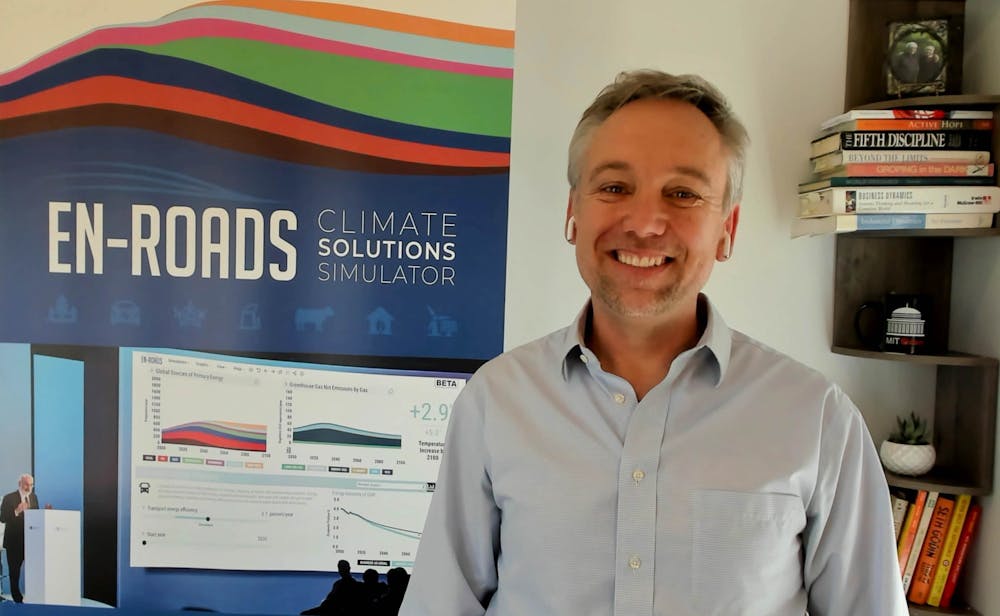When Kenan-Flagler Business School professor Andrew Jones first started to advocate for climate change prevention and awareness, he was frustrated by the unwillingness of policymakers to change their minds based on science.
And quoting his previous Massachusetts Institute of Technology adviser, Jones said "research shows that showing people research doesn't work."
The North Carolina chapters of Citizens' Climate Lobby hosted a simulation workshop on March 17 to teach community volunteers and members about solutions to climate change. The En-ROADS Climate Workshop was created by the MIT Sloan School of Management and Climate Interactive. It was intended to give community members the chance to design their own scenarios to limit future global warming by exploring system-wide global solutions to climate change.
Climate Interactive, a non-profit organization, provides resources such as simulations to help people see connections and play out scenarios to address climate change, inequity and other issues like energy, health and food.
Jones, a co-founder and co-director of Climate Interactive, teaches a course called "Systems Thinking for Sustainable Enterprise" to MBA students.
Jones led Wednesday’s workshop with PollEvs, Q&As and demonstrations of the simulator in use. The simulation is made up of slides of different environmental factors and solutions that demonstrate, on a graph, their impact on the climate’s future.
Climate Interactive also developed the C-ROADS simulation model, a free, award-winning computer simulator that helps people understand the long-term climate impacts of national and regional greenhouse gas emission reductions at the global level.
En-ROADS helps leaders see what policies are needed in order to do the same, Jones said.
“We need to create experiences for people to change their minds on their own terms,” Jones said. “Then we created simulations that are built into workshops and into role play games that are more immersive and powerful.”



